Analytical skills Reading Worksheets for 3-Year-Olds
5 filtered results
-
From - To
Enhance your child's analytical skills with our engaging reading worksheets designed specifically for 3-year-olds. These worksheets promote critical thinking and comprehension through fun, age-appropriate activities. Kids will enjoy exploring colors, shapes, and simple concepts while developing their ability to analyze and interpret information. Each worksheet is carefully crafted to reinforce foundational reading skills, encouraging curiosity and a love for learning. Ideal for at-home learning or supplemental classroom activities, our analytical skills reading worksheets provide parents and educators with essential tools to foster cognitive growth. Discover a variety of challenges that will inspire your little one to think critically and express their ideas!
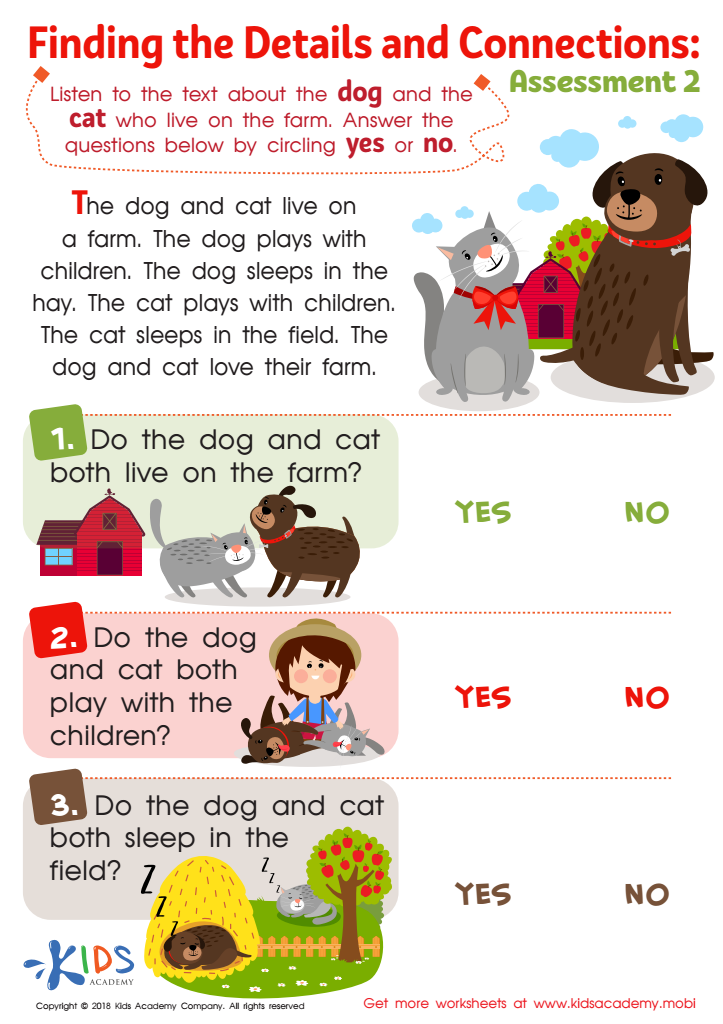

Finding the Details and Connections: Assessment 2 Worksheet
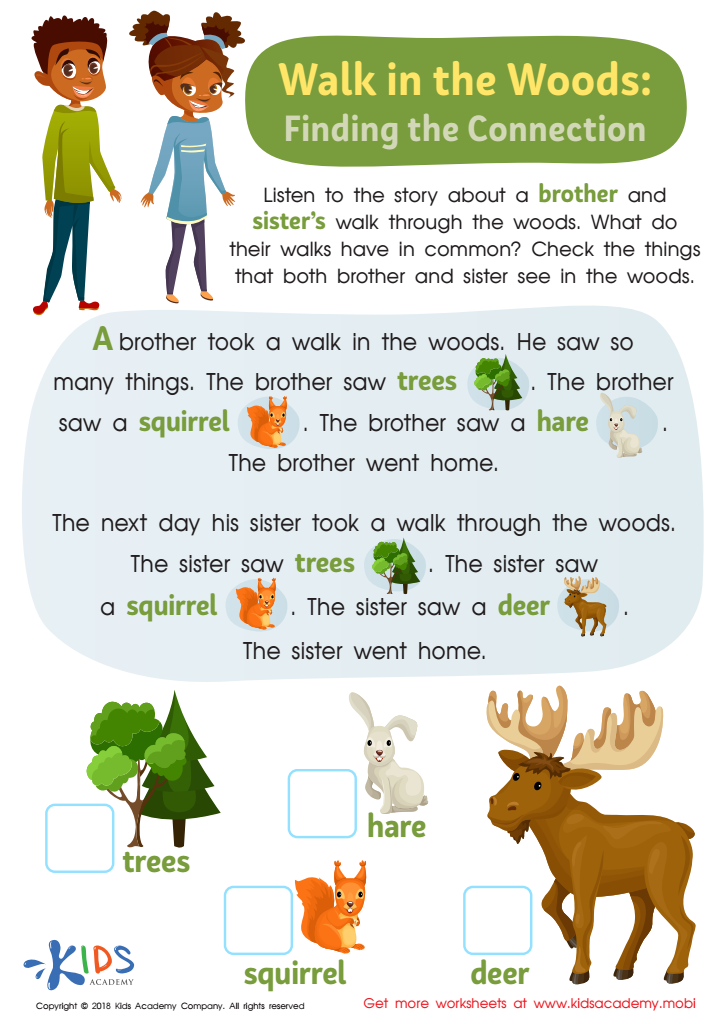

Walk In the Woods: Finding Connections Worksheet
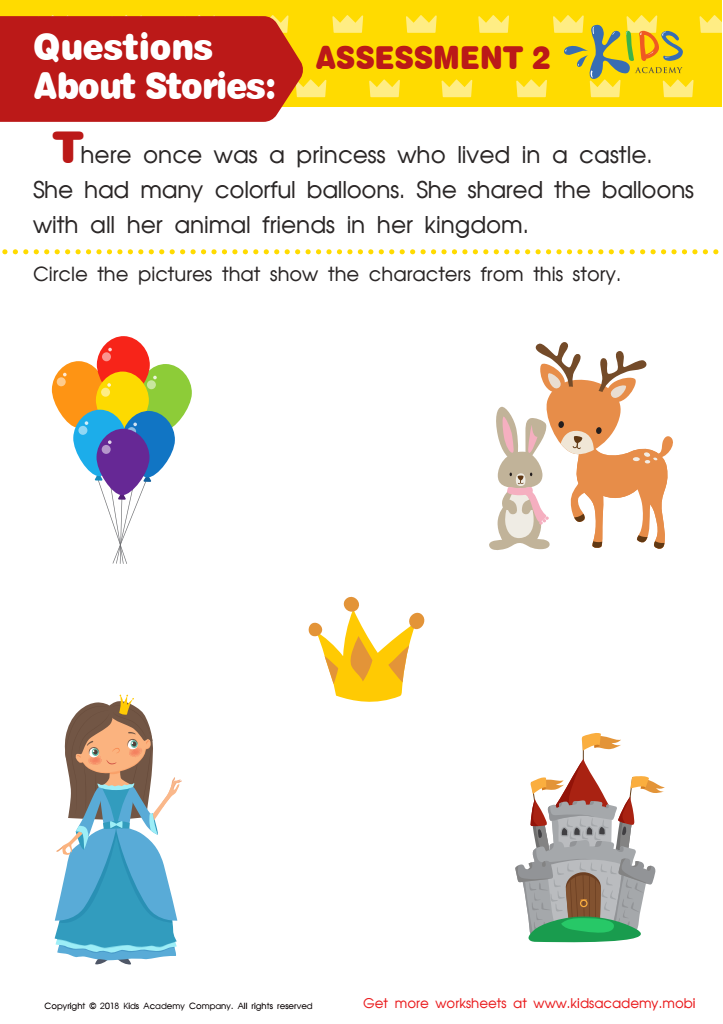

Questions About Stories: Assessment 2 Worksheet
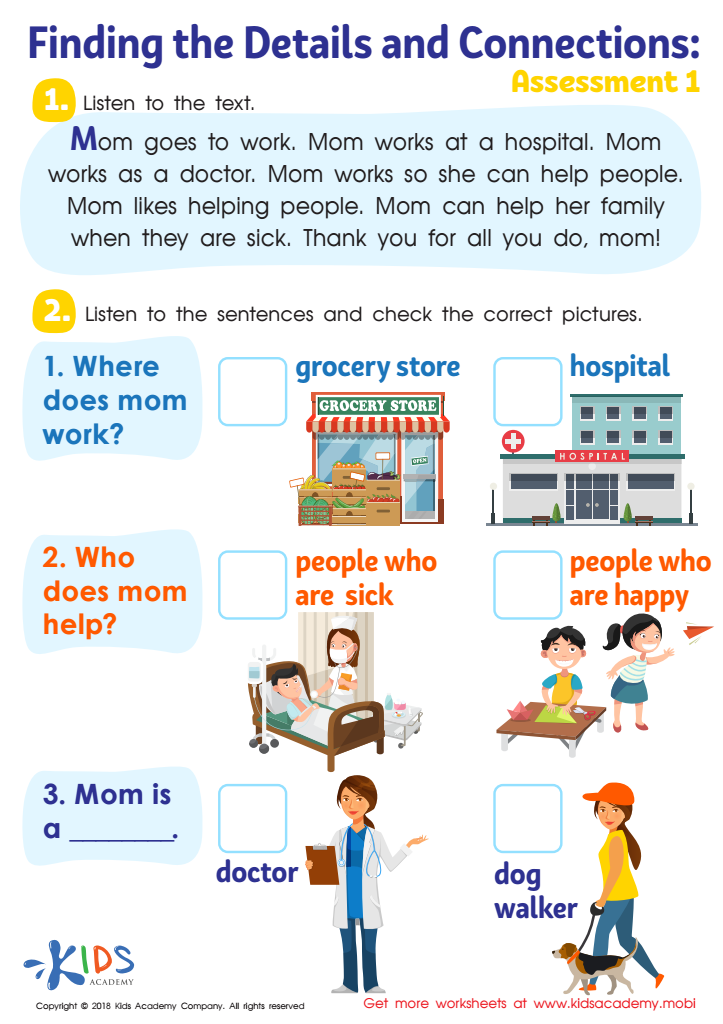

Finding the Details and Connections: Assessment 1 Worksheet
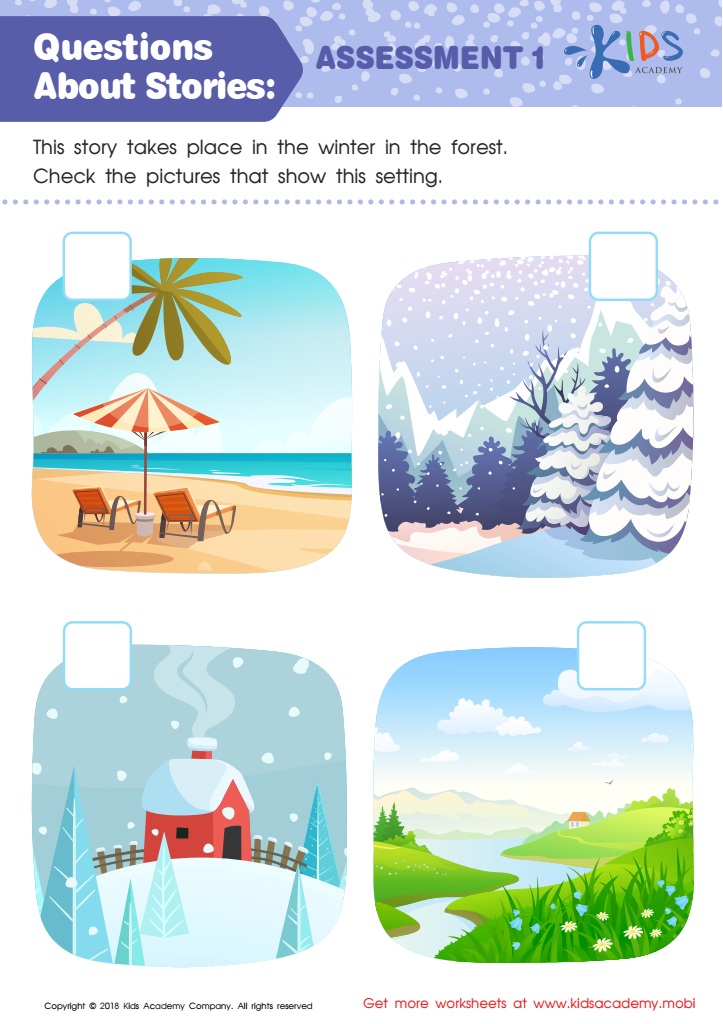

Questions About Stories: Assessment 1 Worksheet
Parents and teachers should care about analytical reading skills for 3-year-olds because these foundational abilities significantly impact a child's overall development and future academic success. At this age, children are highly impressionable and capable of absorbing knowledge in leaps and bounds. By fostering analytical skills through reading, we encourage young learners to think critically, ask questions, and make connections between ideas.
When children engage in reading activities that promote analytical thought, they become better equipped to comprehend complex concepts as they progress through their education. Analytical skills help children understand nuances in stories, evaluate characters' motives, and predict outcomes, setting the stage for more sophisticated cognitive skills in later years.
Moreover, developing a love for reading at an early age cultivates curiosity and imagination. It nurtures a child's emotional and social development, helping them to empathize with others and understand the world around them. Additionally, strong analytical reading will enhance vocabulary and language skills, essential tools for effective communication. Therefore, investing time in reading and encouraging analytical thinking can pave the way for a brighter future for young learners, laying a strong foundation for their lifelong journey of learning and exploration.

 Assign to My Students
Assign to My Students

















